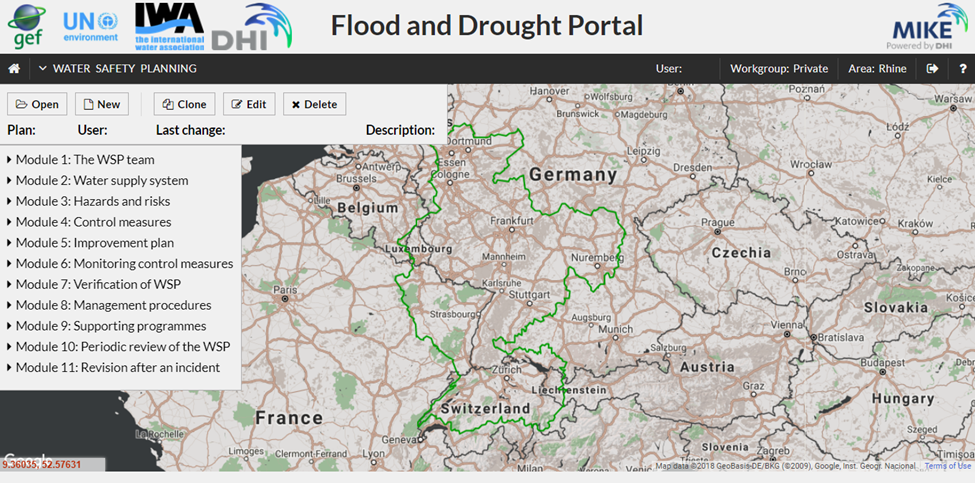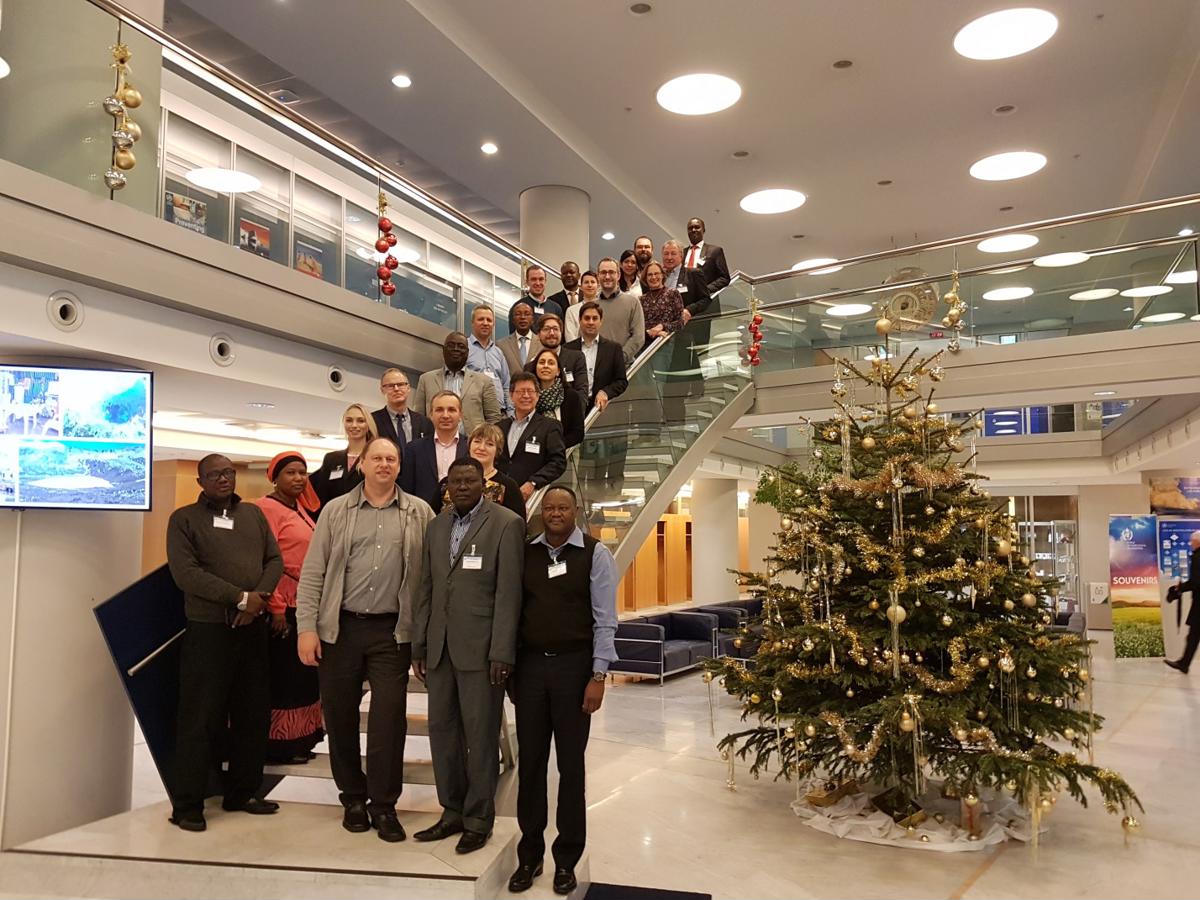Taking action in transboundary basins
11-13 December 2017
Before the approaching Christmas break, water practitioners, health professionals, representatives of water-using sectors and authorities responsible for addressing climate change impacts, at the national and transboundary levels, representatives of bilateral and multilateral donors, financing institutions and the private sector convened in Geneva for a series of water and climate change related meetings organised by the United Nations Economic Commission for Europe from the 11th to 13th December 2017.
As part of the International Workshop on Water Scarcity – aimed at accelerating actions to address water scarcity and thereby reducing the related health, social, economic and environmental risk through the exchange of practical solutions – Raul Glotzbach (Programme Officer, IWA) on behalf of the Flood and Drought Management Tools project, moderated a ‘market place’ roundtable discussion with the aim of sharing approaches, tools and examples for addressing water scarcity from the health perspective and in transboundary basins in an interactive setting enabling discussions in smaller groups.
An overview and demonstration of the Flood and Drought Portal, focussing on a number of technical applications, namely the data and information application and WSP supporting application, prompted discussions around establishing valuable and meaningful tools for end users that are reliable in addressing climate related hazards.

Before returning to our respective countries, a 1 day workshop was organised with support from UNECE, WMO and IW:LEARN on the 13th December convening a number of basin level representatives in particular ongoing GEF projects. The workshop contributed to the FDMT project objectives regarding the TDA/SAP (or transboundary diagnostic analysis and strategic action programme) process. At the same time, the workshop helped fulfil IW:LEARN’s face-to-face services to GEF projects, specifically through their twinning programme.
The workshop, which targeted GEF projects developing TDA and/or SAP (as well as other that could benefit), provided an introduction to the technical applications developed under the FDMT project, and more importantly, how the FDMT methodology and associated applications can be implemented in GEF projects to support the TDA and/or SAP processes.
The workshop specifically addressed topics as identification of environmental impacts and their underlying causes, selection of relevant indicators, access to near real-time climate data for planning, drought assessment, basin planning and dissemination of relevant reports or bulletins. Discussion focused on the relevance of the developed applications to participants ongoing work. The valuable feedback will greatly contribute to the finalisation of technical applications ensuring that the project outputs are meaningful and relevant for transboundary basin planning.

To view the agenda, click here.
TO view the participant list, clikc here.

